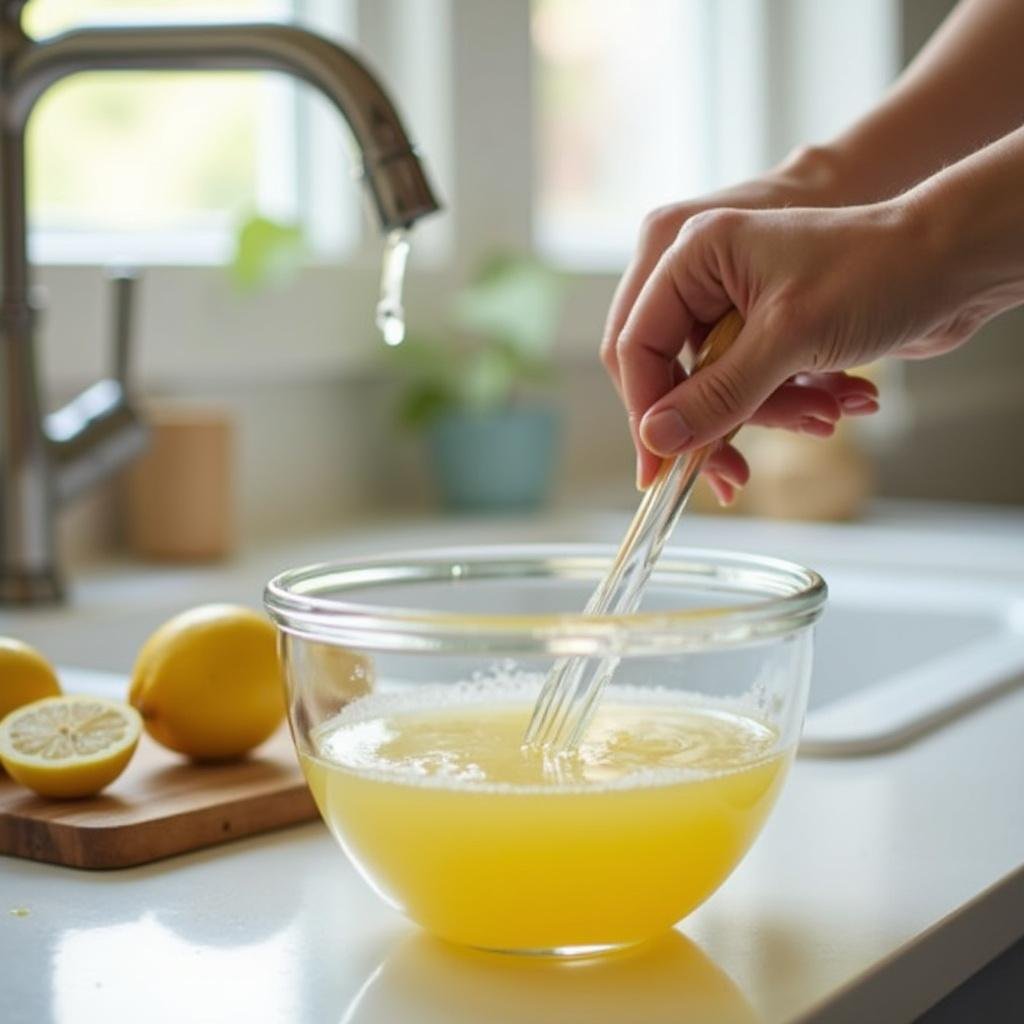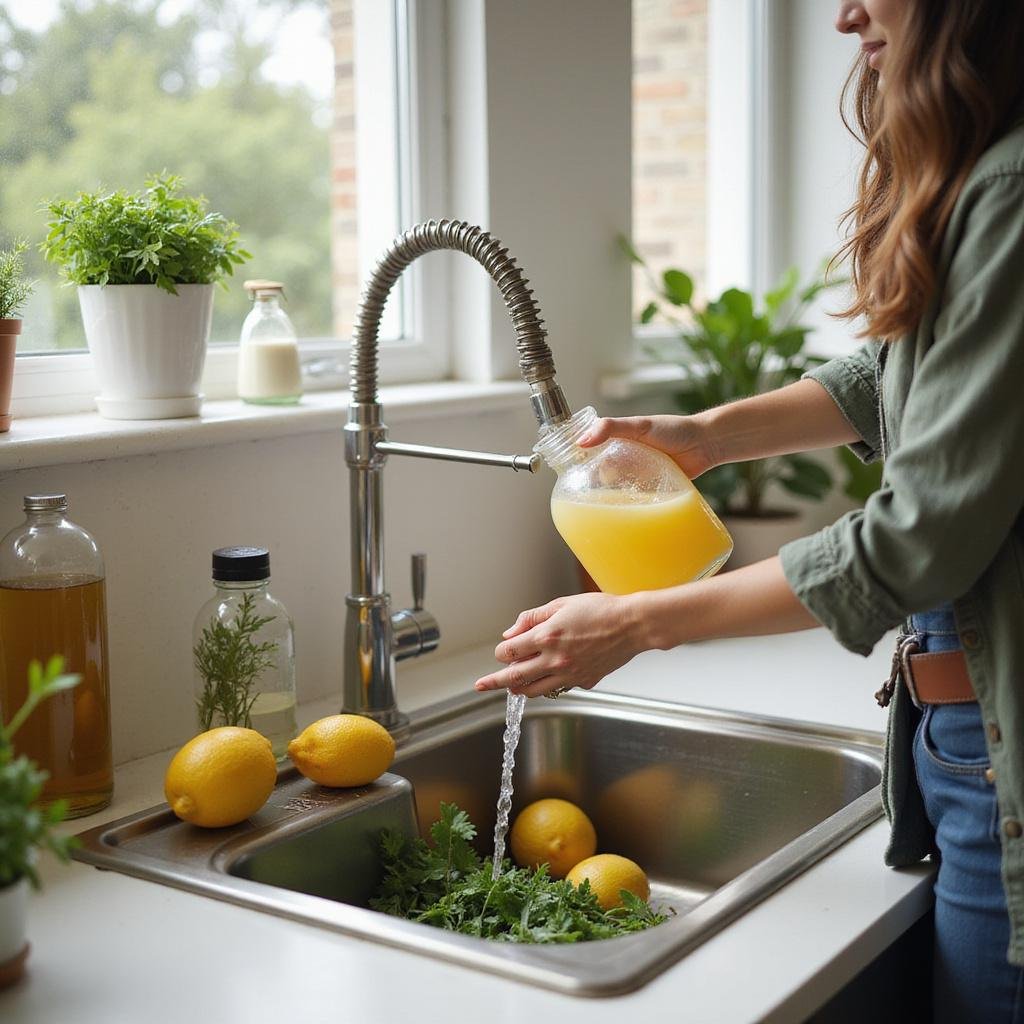1. Introduction
In today’s eco-conscious lifestyle, making your own natural dish soap is not only a smart choice for sustainability but also the best kw for your household cleaning routine. Creating a homemade dish soap allows you to avoid harmful chemicals commonly found in store-bought products while ensuring effective cleaning power. This process is especially important for those seeking eco-friendly #naturalcleaning solutions that are safe for the environment and your family. From tackling greasy pots to everyday dishwashing, crafting your own natural dish soap provides control, customization, and numerous benefits that surpass conventional options. This comprehensive guide will teach you how to make your own natural dish soap, focusing on essential ingredients, techniques, and tips to achieve the best kw in your dishwashing routine, guaranteed to enhance your cleaning efficacy.
2. Why Make Your Own Natural Dish Soap?
Opting to create your own natural dish soap offers multiple advantages, especially in today’s push toward sustainable living. First, it ensures that you use only safe, biodegradable ingredients that are free from harmful chemicals—these include components like high-quality castile soap and organic essential oils, which are trending for their natural cleaning power. Second, homemade dish soap significantly reduces plastic waste and chemical runoff, aligning perfectly with #eco-friendly #naturalcleaning practices. Furthermore, crafting your own dish soap can be more cost-effective over the long term, especially when purchasing ingredients like vinegar and soap flakes in bulk. Achieving the best kw for your dishwashing tasks involves using natural, powerful, yet gentle ingredients, making homemade recipes the ideal choice for a greener, healthier kitchen.
3. The Essential Ingredients for Making Your Own Natural Dish Soap
To craft a top-tier natural dish soap, you need key ingredients that blend cleaning efficacy with eco-friendliness. The best kw in homemade dish soap comes from integrating natural oils, biodegradable surfactants, and essential oils. Here are the core components:
- Castile soap: A biodegradable, plant-based soap that forms the base of your recipe.
- Liquid castile soap or soap flakes: Provides lathering and cleaning power without harmful chemicals.
- Vinegar: A natural degreaser and odor neutralizer that enhances cleaning effectiveness.
- Essential oils: Such as lemon, eucalyptus, or tea tree oil, for fragrance, antibacterial, and antimicrobial properties.
- Water: To dilute and reach your desired consistency, often filtered or distilled for purity.

4. Step-by-Step Guide to Making Your Own Natural Dish Soap
Making your own natural dish soap is simple once you understand the process. To ensure you get the best kw for effective grease removal and gentle cleaning, follow these detailed steps:
- Gather your ingredients: Collect high-quality castile soap, organic vinegar, essential oils of your choice, and filtered water. For extra cleaning prowess, consider adding a splash of the Fullstar Vegetable Chopper and Spiralizer to prep ingredients quickly.
- Mix the base: In a clean container, combine 1 cup of liquid castile soap with 1 cup of distilled water for a balanced consistency that maximizes cleaning power.
- Add vinegar: Incorporate ¼ cup of white vinegar, which not only boosts grease-cutting ability but also helps achieve the best kw for greasy dishes.
- Incorporate essential oils: Add 15-20 drops of lemon, eucalyptus, or tea tree oil, which contribute antimicrobial properties, fresh scent, and nutritional benefits—not forgetting the trending CAROTE Nonstick Pots and Pans set that aids in cooking and cleaning your kitchen efficiently.
- Mix thoroughly: Stir all ingredients well to create a consistent, effective natural dish soap that is ready for use in a reusable bottle or dispenser.
This homemade dish soap not only delivers the best kw for eliminating grease and grime but also aligns with eco-friendly #naturalcleaning trends. Remember, storing your soap in a durable, airtight container, such as the JoyJolt Borosilicate Glass Storage Containers, ensures longevity and safety.
5. Tips for Enhancing Your Homemade Dish Soap’s Effectiveness
- Use hot water: Hot water enhances the dissolving power of your soap, improves grease breakdown, and is a key factor in achieving the best kw for stubborn stains. Consider pairing with a high-tech microwave like the TOSHIBA Countertop Microwave for convenience.
- Adjust the vinegar content: Vary vinegar levels based on water hardness and stubbornness of grease—testing and tweaking will help optimize surface cleaning.
- Include natural abrasives: For challenge spots, sprinkle baking soda on your sponge alongside your homemade soap to boost scrubbing power. The Kitchen Utensil Set offers tools that enhance your cleaning routine.
- Test and refine your recipe: Adjust ingredient ratios over time to maximize cleaning efficiency and fragrance, ensuring you maintain the best kw for your specific dishes and water conditions.
6. Frequently Asked Questions About Making Your Own Natural Dish Soap
What are the benefits of making my own natural dish soap?
Crafting your own dish soap offers many perks, including avoiding synthetic chemicals, reducing plastic waste, and customizing ingredients for the best kw in cleaning. It also supports a sustainable lifestyle and can save you money in the long run by leveraging bulk ingredients like vinegar and soap flakes. For added value, consider using a KitchenAid Stand Mixer to blend ingredients smoothly or make larger batches efficiently.
Is homemade dish soap safe for all types of dishes?
Yes, when composed with natural, food-grade ingredients, homemade dish soap is safe for all dishes, including delicate crystal, glassware, and cookware. For more eco-friendly cleaning tips, visit this guide on naturally cleaning your refrigerator with citrus.
How long does homemade dish soap last?
If stored in airtight, durable containers like the Glass Storage Containers with Lids, your homemade dish soap can last up to 2-3 months. Always check for changes in scent or appearance before use, as natural ingredients do tend to degrade over time.
7. Conclusion
Making your own natural dish soap is a sustainable, cost-effective way to enhance your cleaning routine with the best kw. By choosing eco-friendly ingredients such as castile soap, vinegar, and essential oils, you can craft a powerful yet gentle cleaning solution tailored to your needs. Not only does this approach reduce plastic waste and chemical exposure, but it also allows you to enjoy the satisfaction of creating a customized, effective product. Incorporate tips like using hot water, adjusting vinegar levels, and including natural abrasives for optimal results. Start making your own natural dish soap today and elevate your eco-friendly, healthy kitchen practices while achieving the best kw for dishwashing!


1 thought on “Make Your Own Natural Dish Soap”